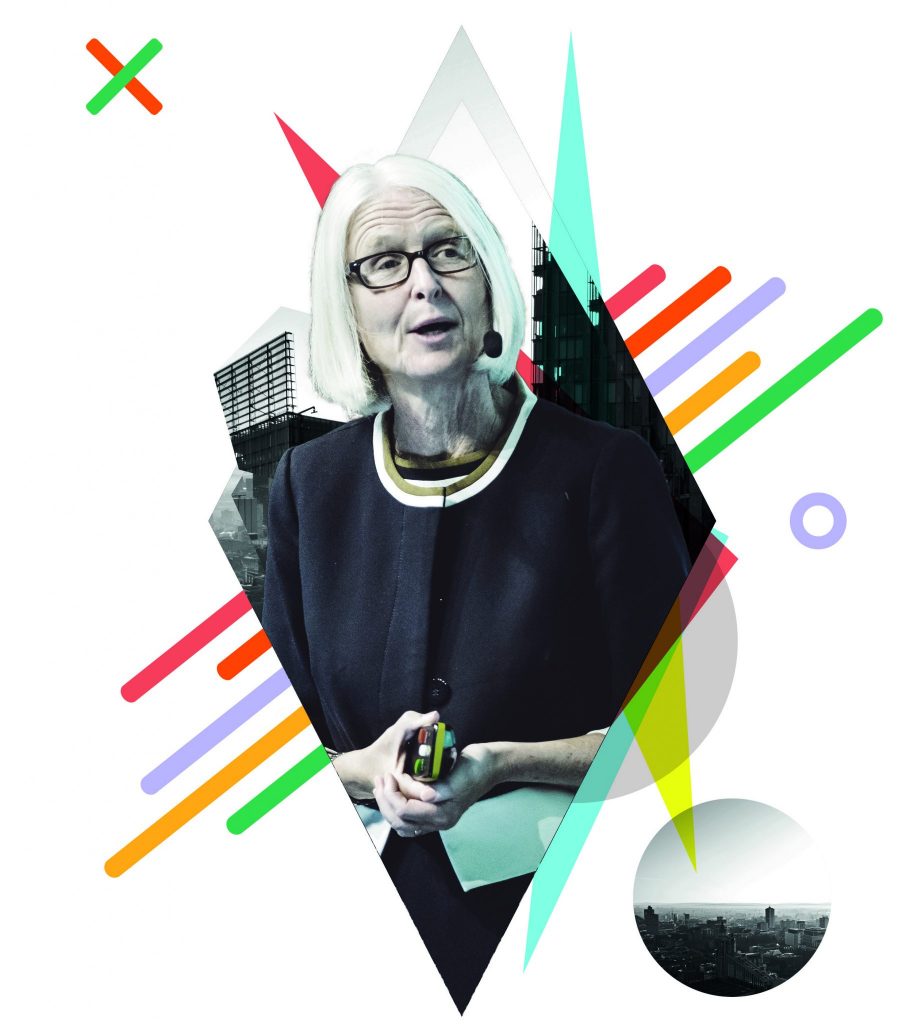Exploring the future of globalisation


At AMBA’s recent conference in Latin America, you presented on the future of globalisation. What did you cover?
I shared a couple of stories about how to be a part of a global partnership. The world is globalising very fast. We all want to be international. So I shared a couple of case studies about how we started our international journey, what worked, what didn’t and what we needed to do to make it happen.
You’ve joined the board of AMBA. How would you like to see the business education arena change for the better?
I’m looking forward to doing my bit. What I’m hoping to bring to the table is the perspective of the continental European school. It’s important to bring in diversity. It’s important to have people of different backgrounds.
What draws prospective MBAs to Rotterdam School of Management?
It’s very international and diverse – 98% of the cohort is non-Dutch. Our mission – ‘to be a force for positive change’ – works very well. It goes beyond sustainability and the UN’s Sustainable Development Goals (SDGs). I believe business is a force for change. More and more people are embracing this principle. We promise our students that by joining our MBA, they will be agents of positive change.
What differentiates the Rotterdam MBA?
It’s very hard for any school to have a genuinely unique element. We all claim to be unique. We all teach finance and marketing. But if you want to stand out, you need to do something different in the area of character building. We very much drive the importance of the SDGs. We tell our students business is not about making money for yourself, but creating a sustainable future for all. It’s about creating business models that do well but also do good. those values are very much alive in our part of the world.
What are some of the innovative teaching methods you’ve come across?
If you look at curricula all over Europe, the delivery format is changing. More and more of the teaching is being done in an experiential way. It’s not just listening to instructions – it’s learning by doing through living cases, field-work and assimilations. That’s basically what’s going on. Ideally, this would be done in diverse teams with people from all over the world. This gives students the opportunity to learn in a very fast pressure-cooker type way, but also with people from different backgrounds.
How important is sustainability in terms of business school course design?
Sustainability is very important. However, we try to step away from using that word, because often the connotation is too narrow – environment or green issues. We’d rather talk about sustainable development and big societal challenges, which go way beyond this narrow interpretation of sustainability – and which make people nervous.
The SDGs talk about poverty, inequality, lack of employment, lack of infrastructure, climate change and much more. In our school we avoid ‘sustainability’ and talk about SDGs.
In light of that, what does a sustainable leader look like to you?
We use the word ‘responsible’ rather than ‘sustainable’ and this means people have a very broad eye on what’s going on in the world; you manage a style of company that goes beyond making money for you and your family, but contributes to a better world. We try to encourage our students and graduates to contribute to a better world and be a force for positive change.
In your personal and professional life, you’ve worked all over the world. How do you instil this international mindset in your students?
We do this by recruiting people with different backgrounds from all over the world, in all our programmes, and by creating an international atmosphere. We create opportunities for people to work with others with different experiences. We also recruit faculty from all over the world and who will go places with their students. Our students travel all over the world and therefore are exposed to the global mindsets.
How can MBAs turn theory into practice in the working world?
People have to do something experiential. We stimulate students to set up their own businesses, often in the area of social business.
You’re looking for students who can deliver on a global scale. Should students look at local economies first and work up – or take a top-down approach?
To me, it’s very clear: people bring local experience but they have to do something with global impact.
Collaboration is vital in uncertain climates. How is your school building links with other schools, employers and alumni?
We’re international through strategy and sheer luck. We’re members of leading groups and our Triple Crown accreditation gives us access to very strong international networks, in which we can discuss new initiatives and programmes. This collaboration for us is key to stay ahead of the competition.
I’m using the word ‘competition’ but some of the schools we’re ‘competing’ with in the same market are also the schools with which we want to collaborate.
What are the challenges that business schools face?
There are quite a few challenges facing us. First, funding: we’re mainly a public university, so funding goes down year after year; one way or another you have to absorb that. At the same time, all schools want to be international and we’re after the same faculty and students, so competition is getting fiercer. Faculty management and retention is a big challenge for most Schools.
What would your advice be to other business school leaders operating in this volatile and uncertain world?
Over the years, I learned something that surprised me: the importance of having a compelling mission. Up until three years ago, I thought no one cared about mission. Then we worked on a new mission. To my surprise, this has released an enormous amount of energy and passion.
Mission, to my mind, is nothing else but common purpose. Everyone wants a purpose in life. If you have a purpose you can rally everyone behind it and then it’s a lot easier to change things as they all understand what you want to achieve.
Our new mission has had an impact on our school, students, faculty staff and also external stakeholders. It has served us very well so far. I’d urge business school leaders to define their mission and purpose; once they do, things will become a lot easier.
How can a business school add value to a corporate employer with which it’s working?
A business school is all about delivering talent to the job market, so as a business school you need to stay on top of what exactly the market requires. It’s changing very fast and teaching is moving away from accounting and finance towards business analytics. Business schools have to follow the trends, there’s no way around it, and you have to stay in contact with companies.
What’s your level of optimism about business, business schools and the economy?
On a scale of one to 100, it’s very close to 100. I’m an optimist by nature, in spite of all the uncertainty in the world – especially around politics. I truly believe in the EU and this has worked well in Europe.

Steef van de Velde is a Professor of Operations Management and Technology and the Dean of Rotterdam School of Management, Erasmus University (RSM).
Read more Business Impact articles related to geopolitics

Strong rebounds set to fuel opportunity in Latin America
Latin America has responded strongly to the impact of Covid-19 and has the potential to become a global hub for entrepreneurship and innovation, says Gregorio Esteban

Why Latin America’s influence is set to grow
Latin America is poised to play a greater role on the world stage, as countries reassess trade relationships and take stronger stances on climate change, says Gregorio Esteban. Business leaders should take note

How business schools can bridge the political divide: part II
Business schools can no longer afford to ignore the intimate interrelationship between business and politics – and they must go beyond layering ESG perspectives onto standard business thinking – says Joe Zammit-Lucia
Want your business school to feature in
Business Impact?
For questions about editorial opportunities, please contact:
Tim Banerjee Dhoul
Content Editor
Business Impact



























